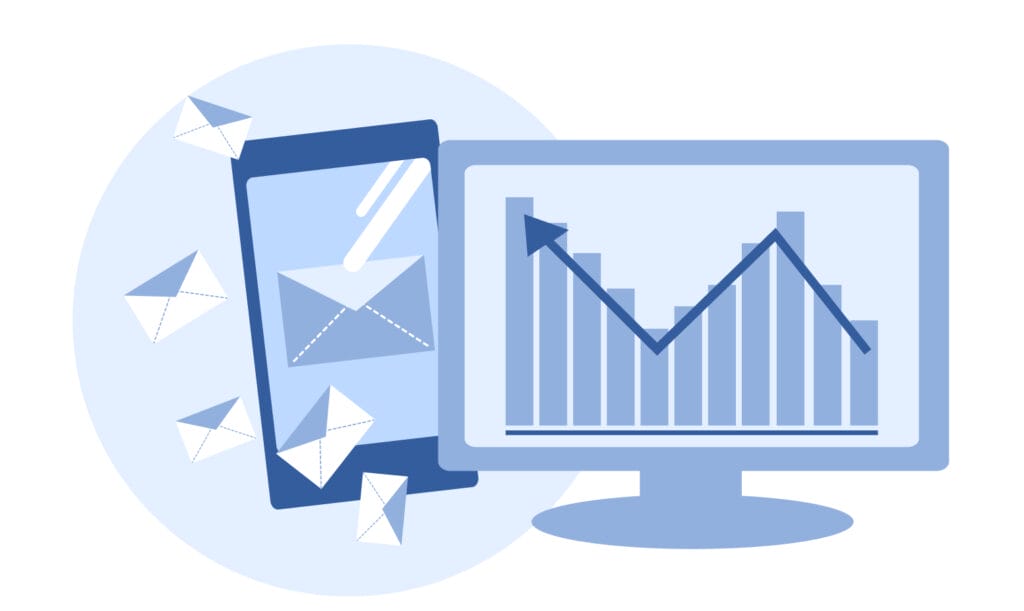From leveraging cutting-edge technologies to crafting compelling narratives around your products, each tip in this post is a piece of the puzzle that will transform your sales prospecting efforts, driving leads and meaningful business relationships.
Keep reading to learn actionable strategies designed for the unique challenges you face in the medical device industry.

Understanding Your Market
Effective sales prospecting lies in a deep understanding of your market.
Take note that this isn’t just about knowing your product –– it’s about knowing who needs it, why they need it, and how they make their purchasing decisions.
Identifying Your Target Audience
Analyzing Healthcare Sector Needs
To identify your target audience, start by analyzing the specific needs within this sector. Ask yourself:
- What challenges are hospitals facing that your medical devices can solve?
- How can your products improve patient care in clinics?
Understanding these needs is crucial in tailoring your approach to each segment.
Segmenting the Market: Hospitals, Clinics, and Private Practices
Segmentation is your roadmap to a more focused sales strategy.
Hospitals may prioritize cutting-edge technology and efficiency, while private practices focus more on cost-effective, user-friendly devices.
Recognizing these nuances allows you to customize your messaging and value proposition to resonate with each segment.
Competitive Analysis
Understanding Your Competitors’ Strategies
Analyze your competitors’ strategies: What are they doing right? Where are they falling short?
This insight is invaluable, not for imitation, but for finding opportunities to differentiate your offerings.
Leveraging Industry Trends
Is there a shift towards telemedicine?
How is AI influencing device development?
By aligning your sales strategies with these trends, you position your company as a forward-thinking leader in the medical device field.

Building a Strong Prospecting Strategy
Authenticity and relevance are your best tools for building your prospecting strategy.
Your goal is to establish genuine connections with your prospects, offering them real solutions to their unique challenges.
Effective Communication Channels
While social media platforms can help you reach a broader audience, personal calls or face-to-face meetings can significantly strengthen relationships.
So, in addition to choosing the right communication channels, find the right balanced mix of digital and traditional methods of communication.
Crafting Your Value Proposition
When crafting this message, focus on your medical devices’ unique benefits.
- How do they improve patient care?
- How do they streamline operations for healthcare providers?
Remember, it’s not just about the features of your product; it’s about the solutions it provides.

Leveraging Technology in Prospecting
By staying ahead of technological trends and utilizing these tools, you position your company as an innovative leader in the medical device industry.
CRM Tools and Their Importance
Customer Relationship Management (CRM) tools are at the forefront of technological advancement in sales prospecting.
These systems allow you to:
- Track Prospect Interactions: Every call, email, or meeting is logged, giving you a comprehensive view of your interactions with each prospect.
- Analyze Data for Better Targeting: CRM tools provide valuable insights into your prospects’ behaviors and preferences, enabling you to tailor your approach effectively.
By integrating CRM tools into your prospecting strategy, you’re organizing and optimizing your prospecting efforts, leading to a more personalized approach to each prospect increasing the likelihood of converting leads into customers.
Automation and AI in Prospecting
The integration of automation and artificial intelligence (AI) in prospecting is a game-changer due to the following reasons:
- Streamline Repetitive Tasks: Automation frees your sales team to focus on more strategic activities by handling routine tasks like data entry and initial lead qualification.
- Predictive Analytics for Identifying Potential Clients: AI can analyze vast amounts of data to identify patterns and predict which leads are most likely to convert. This allows you to focus your efforts where they’re most likely to pay off.

Relationship Building and Networking
Building strong relationships and effective networking are foundational elements for long-term success in an industry where trust and credibility are paramount.
Establishing Trust with Prospects
- Personalized Approaches: Understanding and addressing each prospect’s specific needs and concerns. This shows that you value them as potential sales and partners.
- Educating Clients About Products: Providing detailed, accurate information about your medical devices helps establish your credibility and demonstrates your commitment to their needs.
Networking Strategies
Effective networking is about finding synergies and building mutually beneficial relationships, which can be applied by incorporating these strategies:
- Attending Industry Events and Webinars: These are excellent opportunities to meet potential clients and partners, learn about the latest industry trends, and position yourself as an active player in the medical device field.
- Building Partnerships and Collaborations: Collaborating with other businesses or industry influencers can open up new channels and markets for your products.
Remember, networking is a two-way street. By focusing on building genuine, meaningful connections, you create a network that’s not just extensive but also supportive and engaged.

Nurturing Leads and Closing Deals
Transitioning prospects into paying customers is the crux of sales prospecting, especially in the medical device industry. In addition to being persistent, you must be smart and strategically engage prospects to nurture leads and effectively close deals.
Follow-Up Strategies
- Timing and Frequency of Follow-Ups: Striking the right balance in follow-up communication is crucial –– too frequent, and you risk overwhelming the prospect; too infrequent, and you might lose their interest.
- Personalized Follow-Up Content: Tailoring your follow-up messages to address the specific needs and previous interactions with each prospect shows that you are attentive and committed to providing value.
Overcoming Objections and Closing Techniques
Closing deals in the medical device industry requires a blend of patience, persistence, and professionalism.
Key strategies include:
- Handling Common Concerns and Objections: Be prepared to address potential objections by understanding common concerns in the medical device industry and having clear, concise responses ready.
- Effective Closing Strategies for Medical Device Sales: Use closing techniques that are consultative rather than aggressive. This might involve demonstrating the long-term value and ROI of your product, or offering trial periods or demonstrations.

Measuring and Analyzing Sales Performance
By regularly measuring and analyzing your sales performance, you can make data-driven decisions that enhance your sales effectiveness.
This ongoing process of evaluation and adaptation is what keeps your sales strategies fresh, relevant, and successful in the dynamic medical device market.
Key Performance Indicators (KPIs)
These KPIs offer valuable insights into the effectiveness of your sales strategies and where there might be room for improvement:
- Sales Conversion Rates: Understanding how many leads turn into actual sales.
- Average Deal Size: Monitoring the average value of each sale.
- Length of Sales Cycle: Assessing how long it takes to close deals.
- Customer Acquisition Cost: Calculating the cost involved in acquiring a new customer.
Continuous Improvement
- Learning from Successes and Failures: Analyze what worked well and what didn’t in your sales processes. This reflection is key to refining your approach.
- Adapting to Market Changes and Feedback: Stay agile and be ready to adjust your strategies in response to market trends and customer feedback.
Take Charge of Your Medical Device Sales Success Now
By collaborating with a team that brings experience, innovation, and a deep understanding of the medical device market, you can elevate your sales prospecting strategies to new heights.
So, let’s unlock the full potential of your sales prospecting efforts in the medical device manufacturing industry –– sign up now.


